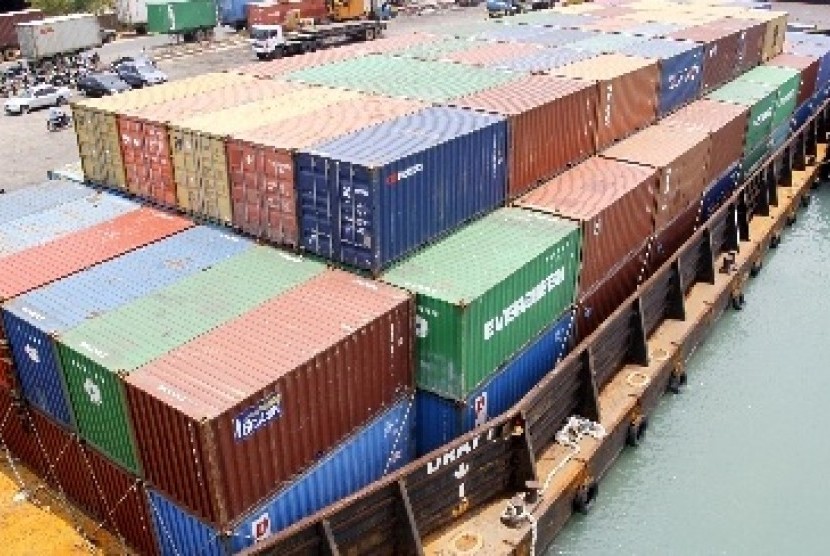REPUBLIKA.CO.ID, MEDAN -- North Sumatra Utara recorded an increase in export volume but fell in value in February, 2016.
In the first months of 2016, the province exported US$1.162 billion worth of goods or 1.77 percent lower than exports in the same period last year.
The trend of trade, however, was encouraging with an increase in export volume, head of the North Sumatra office of the Central; Bureau of Statistics (BPS) Wien Kusdiatmono said.
North Sumatra exported 1,350,177 tons of goods in the first two months of 2016 , up from 1,224,248 tons in 2015, he pointed out here ion Saturday.
The decline in the export earning was caused by commodity price fall especially prices of natural rubber and vegetable and animal oils, the largest export earners for the province.
Secretary of the North Sumatra branch of the Indonesian Association of Rubber Companies (Gapkindo) Edy Irwansyah said the price of rubber began to pick up but remained low.
Edy Irwansyah said rubber price to climb in March after the cut in exports by the world's three largest producers , Thailand Indonesia and Malaysia.
"Gapkindo hopes that the price of rubber would continue to pick up to encourage the growers and the exporters," Edy said.
The three ASEAN countries agreed to cut exports of natural rubber since March 1 with total retention of 615,000 tons to last until 31 August, 2016 in line with the Agreed Export Tonnage Scheme (AETS).
Under the AETS scheme Thailand, the world's largest producer is to reduce its exports of natural rubber by 324,005 tons, Indonesia, the second largest producer by 238,736 tons, and Malaysia, the third largest by 52,259 tons.
North Sumatra, one of the largest natural rubber producing provinces, contributes to the scheme by cutting exports by 38,000 tons.
Edy said the price at present is around US$1.30 per kg , up from US$1.08 earlier.
"Though rising, the price is still much below the level considered ideal," he said, adding an idea price for natural rubber in FOB Belawan is around US$1.90 per kg.
The export retention is aimed at propping up the market of natural rubber. Indonesia, while cutting exports hopes to increase domestic consumption of natural rubber.


